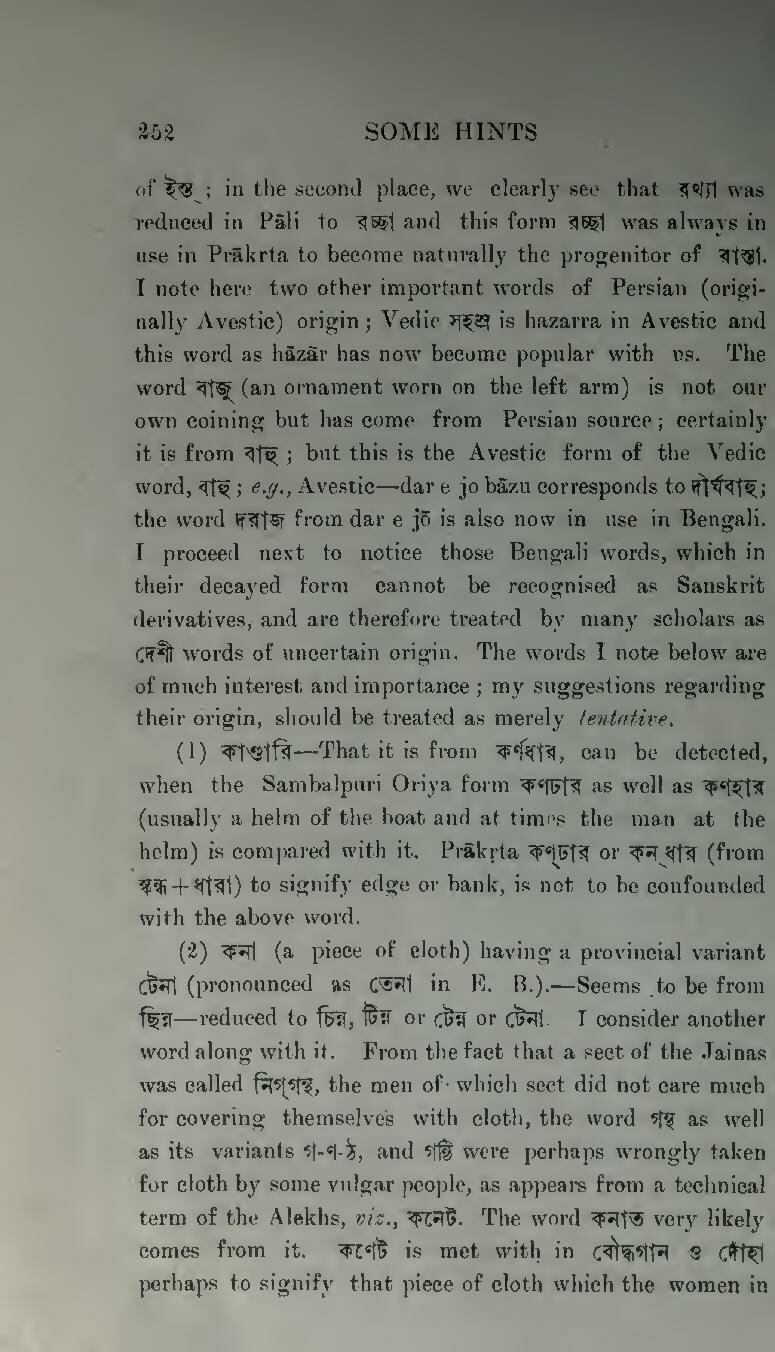of ইস্ত্; in the second place, we clearly see that রথ্যা was reduced in Pāli to রচ্ছা and this form রচ্ছা was always in use in Prākṛta to become naturally the progenitor of রাস্তা. I note here two other important words of Persian (originally Avestic) origin; Vedic সহস্র is hazarra in Avestic and this word as hāzār has now become popular with us. The word বাজু (an ornament worn on the left arm) is not our own coining but has come from Persian source; certainly it is from বাহু; but this is the Avestic form of the Vedic word, বাহু; e.g., Avestic—dar e jo bāzu corresponds to দীর্ঘবাহু; the word দরাজ from dar e jō is also now in use in Bengali. I proceed next to notice those Bengali words, which in their decayed form cannot be recognised as Sanskrit derivatives, and are therefore treated by many scholars as দেশী words of uncertain origin. The words I note below are of much interest and importance; my suggestions regarding their origin, should be treated as merely tentative.
(1) কাণ্ডারি—That it is from কর্ণধার, can be detected, when the Sambalpuri Oriya form কণঢার as well as কণহার (usually a helm of the boat and at times the man at the helm) is compared with it. Prākṛta কণ্ঢার or কন্ধার (from স্কন্ধ + ধারা) to signify edge or bank, is not to be confounded with the above word.
(2) কনা (a piece of cloth) having a provincial variant টেনা (pronounced as তেনা in E. B.).—Seems to be from ছিন্ন—reduced to চিন্ন, টিন্ন or টেন্ন or টেনা. I consider another word along with it. From the fact that a sect of the Jainas was called নিগ্গন্থ, the men of- which sect did not care much for covering themselves with cloth, the word গন্থ as well as its variants গ-ণ-ঠ, and গণ্ঠি were perhaps wrongly taken for cloth by some vulgar people, as appears from a technical term of the Alekhs, viz., কনেট. The word কনাত very likely comes from it. কণেট is met with in বৌদ্ধগান ও দোঁহা perhaps to signify that piece of cloth which the women in
